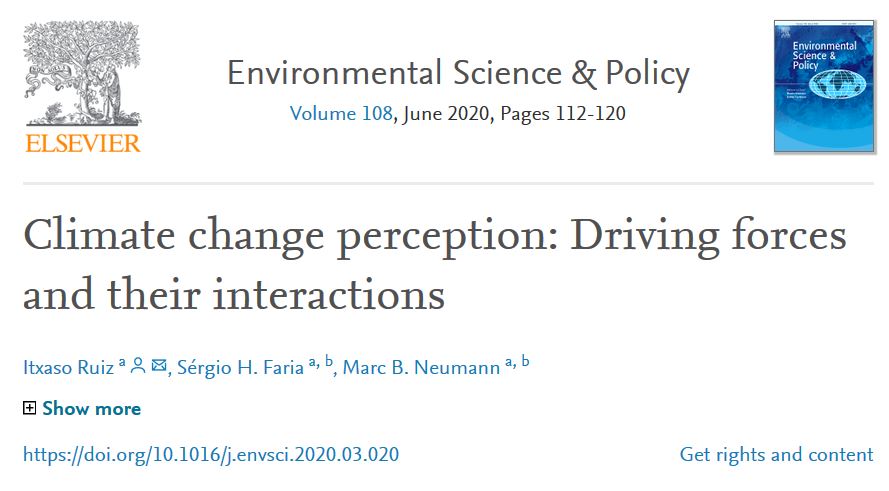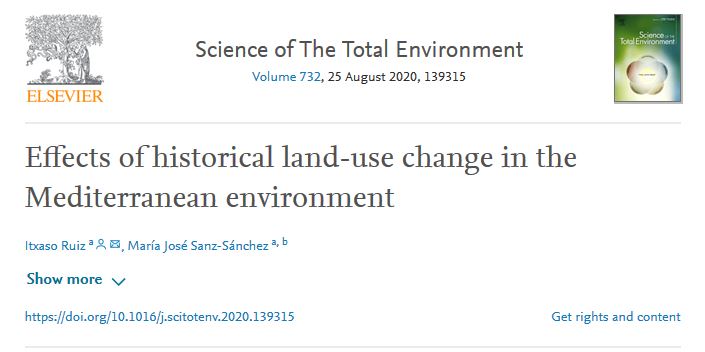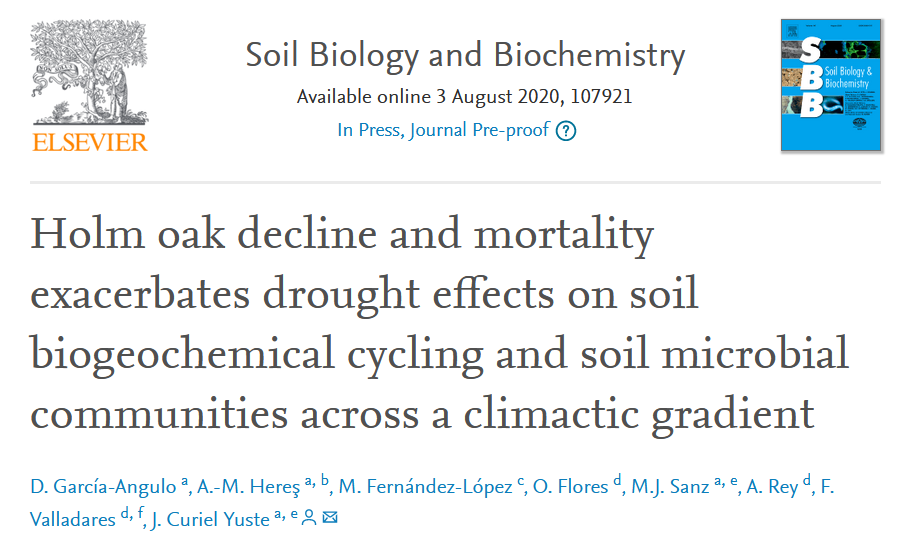April 16, 2020
Published by BC3Research David Moreno Asun Rodríguez at April 16, 2020
Multiple large-scale restoration strategies are emerging globally to counteract ecosystem degradation and biodiversity loss. However, restoration often remains insufficient to offset that loss. To address this challenge, we propose to focus restoration science on the long-term (centuries to millennia) re-assembly of degraded ecosystem complexity integrating interaction network and evolutionary potential approaches. This approach provides insights into eco-evolutionary feedbacks determining the structure, functioning and stability of recovering ecosystems. Eco-evolutionary feedbacks may help to understand changes in the adaptive potential after disturbance of metacommunity hub species with core structural and functional roles for their use in restoration.
April 24, 2020
Published by BC3Research Itxaso Ruiz at April 24, 2020
Public perception of climate change can either facilitate or hinder the implementation of climate policies. This perception is dependent on a number of influencing factors, called drivers, in ways that are still not clearly understood. Our study quantifies the relative strength of drivers of climate change perception, taking into account differences in the social, political, geographical, economic and educational identities of any considered community.
June 1, 2020
Published by BC3Research Itxaso Ruiz Maria Jose Sanz at June 1, 2020
During the Holocene (last ~11,700 years), societies have continuously modified the landscape of the Mediterranean Basin through changes in land-use, exerting extraordinary pressures onto the environment and adding variability to the climate. Despite its importance to current land management, knowledge of how past land-use practices have impacted the regional climate of the Basin remains largely in the scientific sphere.
August 6, 2020
Published by BC3Research Daniel Garcia Jorge Curiel Maria Jose Sanz at August 6, 2020
The extent to which the increasingly frequent episodes of drought-induced tree decline and mortality could alter key soil biogeochemical cycles is unclear. Understanding this connection between tree decline and mortality and soils is important because forested ecosystems serve as important long-term sinks for carbon (C) and essential nutrients (e.g., nitrogen and phosphorus).




